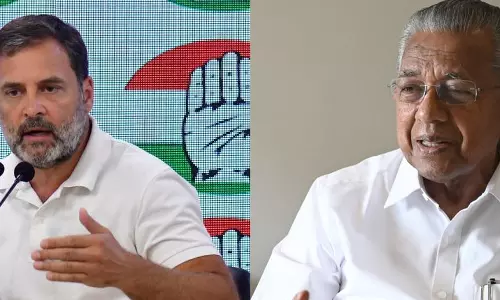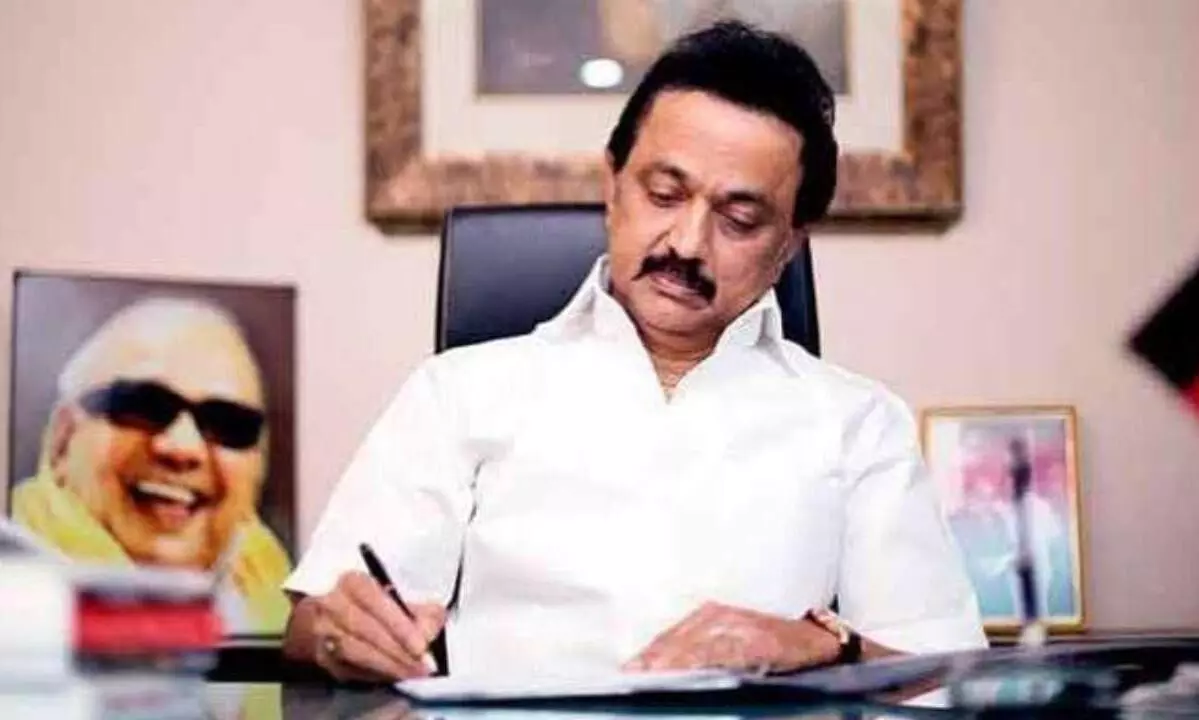
NEET and the Tamil Nadu bill
text_fieldsThe Tamil Nadu assembly on Tuesday unanimously passed for a second time a bill that exempts the state from the National Entrance and Eligibility Test (NEET), the centrally administered test held for medial admissions. The same bill was passed in September 2021, but the Governor RN Ravi returned it without signing it. Hence its re-adoption by the Assembly. The Governor's act of returning without signature a bill passed by an elected assembly had triggered a major political controversy. All parties of Tamil Nadu barring the BJP, had raised protests at this action. And now, the matter has gone beyond the issue of NEET exams and has developed into larger debates about the powers of states and federalism.
It was one of the promises in the DMK's election manifesto that if voted to power it would abolish NEET. The contention of the Tamil Nadu government is that NEET represents a method of keeping away students from rural background from the medical education scene. They also argue that the system which makes medical education inaccessible for students in government schools, was benefiting only the richer segment who could afford the huge fees charged by coaching centres. Chief minister MK Stalin went to the extent of calling NEET a modern form of untouchability, a criticism that has been raised by many others in the country too. There are over a hundred cases pending in different courts in this matter. As the chief minister Stalin stated in the Assembly the other day, NEET is not a holy cow, but just a mechanism introduced by the Central Government through an ordinance.
There could be arguments about the pros and cons about NEET. But the serious question involved here is whether a state government doesn't have the right to make law according to the social conditions prevailing in that state. Now that the TN government has passed the bill a second time, this question is surfacing again with greater force. When the bill is submitted for his signature a second time, the governor is constitutionally bound to sign it. But when it is presented for the President's assent, what stand he would take is also going to be critical. In other words, if it fails to win President's approval, it may create serious reactions within Tamil Nadu. The state government had already taken a position that it would no longer call the central government by that name, but would only call it Union Government. It is true that ever since the Modi government took office, the federal nature of the country is being overturned to a great extent. GST, NIA amendment and NEET are just signs of that trend. The powers of the state are being eroded considerably through legislation and executive actions, and without constitutional amendments. The concept introduced in the latest union budget of 'One Nation, One Registration' is also part of this scheme. Efforts have also been initiated for the Centre to enter the area of co-operation by forming a Ministry of Co-Operation at the central level. Instead of accepting the concept of the country as a union of states with their own powers, the Central government has been adopting an approach of seeing states as mere panchayats.
The speech made by Congress leader Rahul Gandhi in the last parliament session was an attack on the Centre's approach of consistently violating federal principles. MK Stalin recently wrote letters to leaders of various political parties to come in solidarity against the Centre's tendencies. Telangana chief minister K Chandrasekhar Rao went to the extent of demanding that the country now should have an entirely new constitution. The feeling of being alienated from the country's mainstream is strong among the north-eastern and southern states. For these reasons, the TN government's objections regarding NEET are not just related to an entrance test; instead they are part of a larger struggle to protect the rights of states and the federal characteristics of the country. For this very reason, it is also the responsibility of advocates of democracy to support it.





















